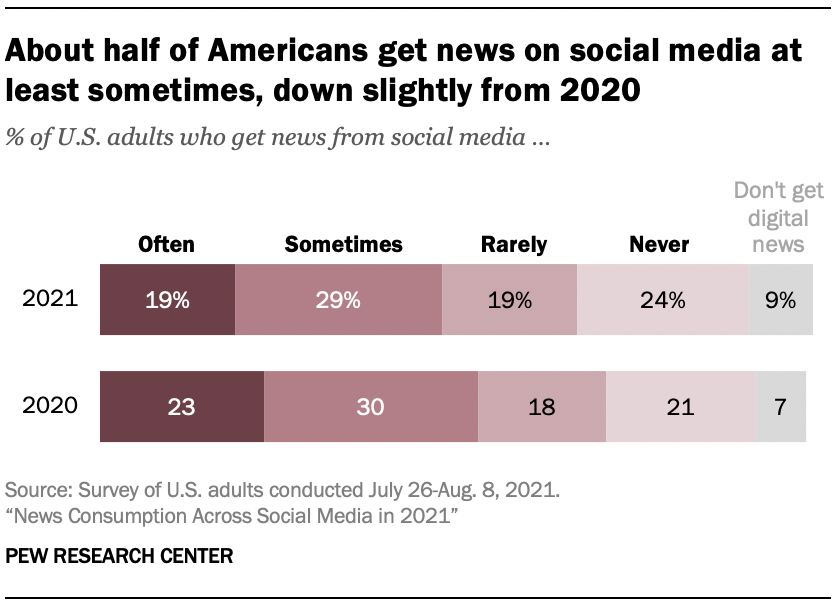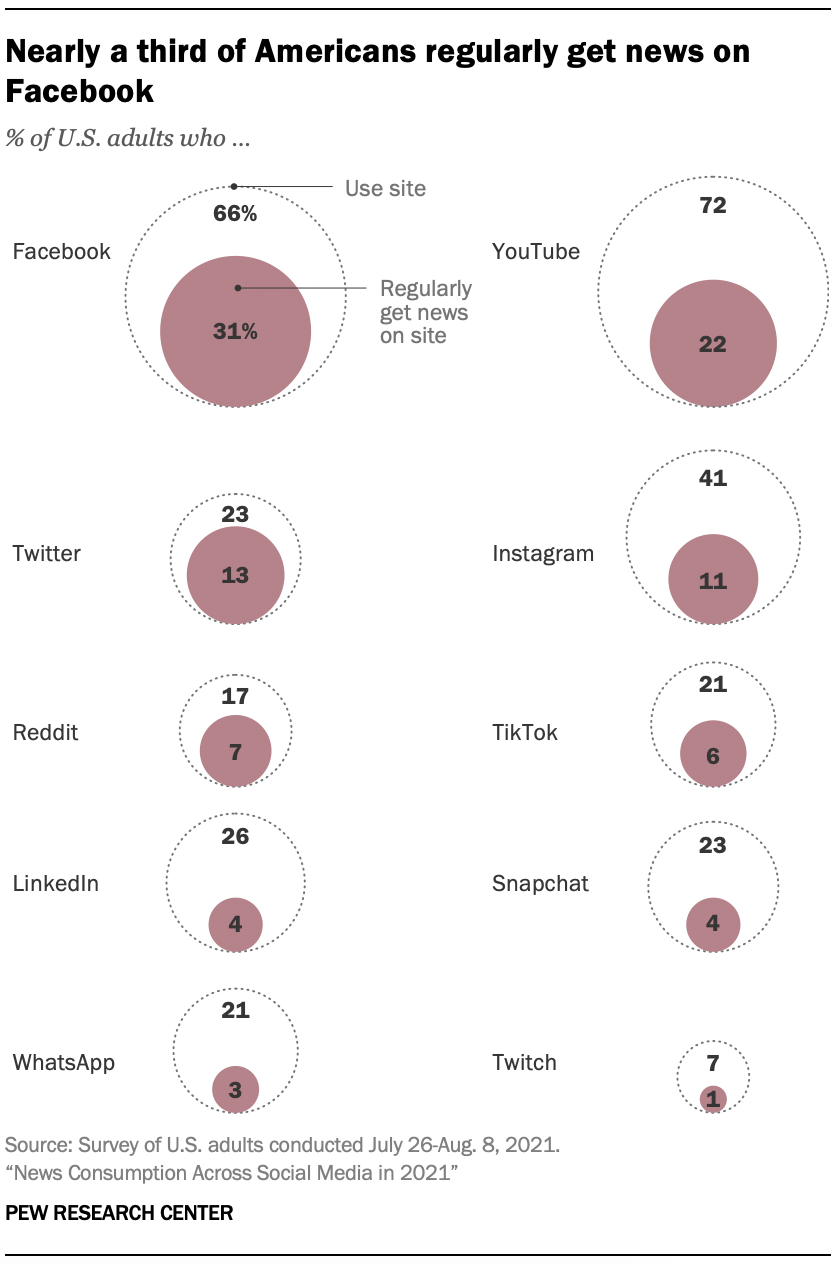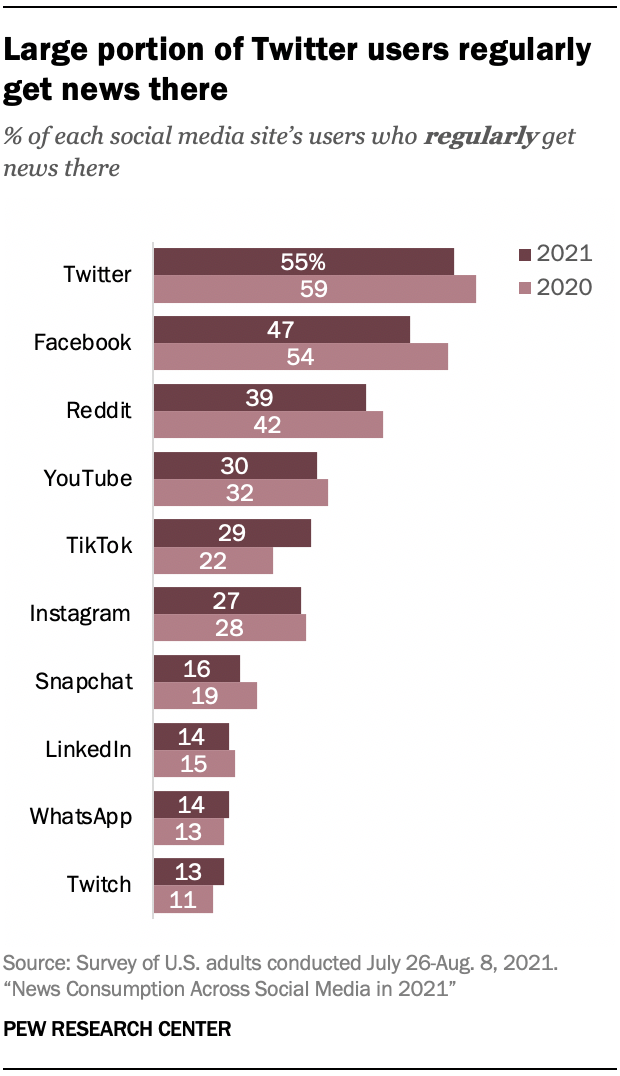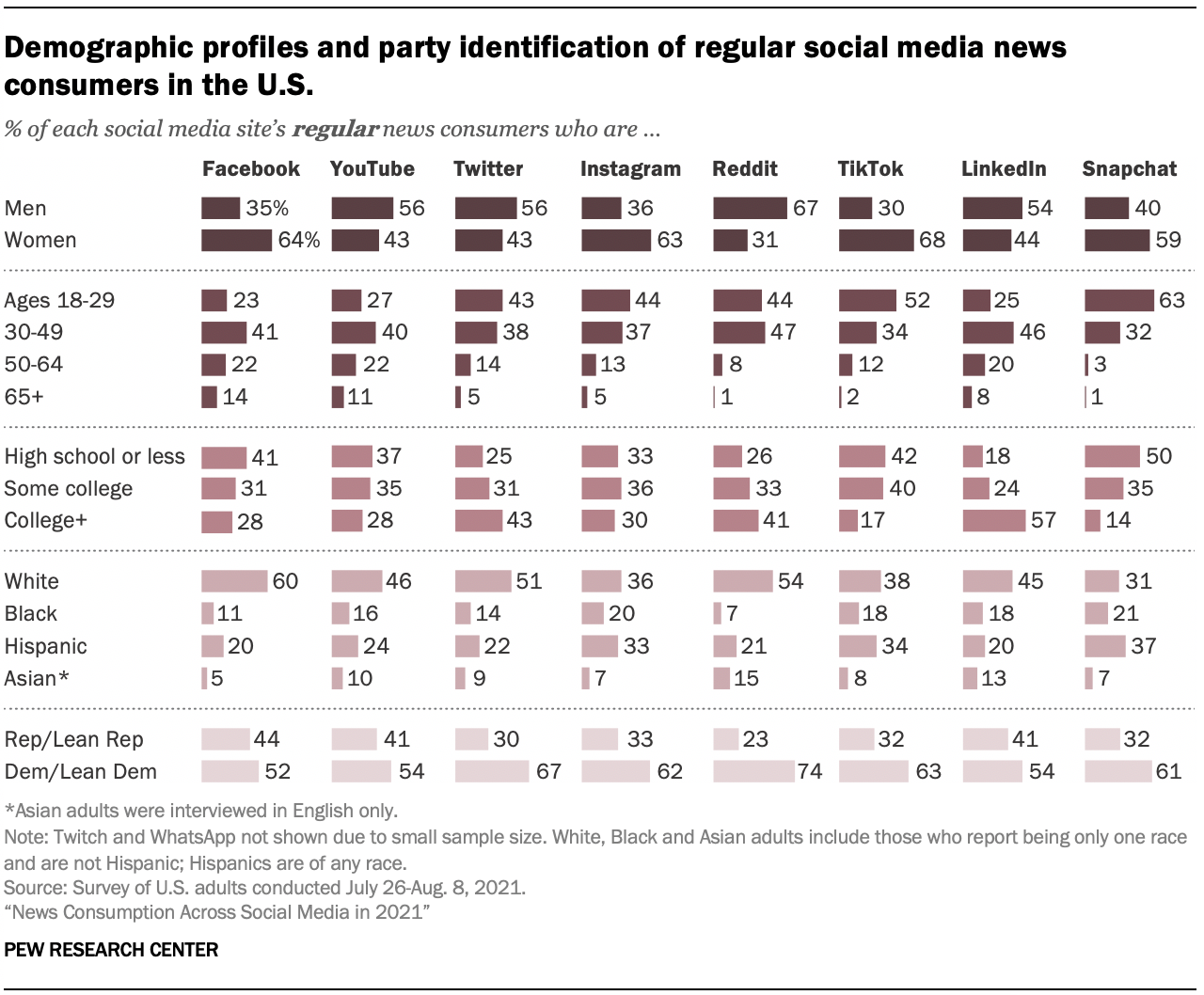Here are the questions used for this analysis, along with responses, and its methodology.
This is the latest report in MARCA POLITICA ongoing investigation of the state of news, information and journalism in the digital age.

As social media and technology companies face criticism for not doing enough to stem the flow of misleading information on their platforms, a sizable portion of Americans continue to turn to these sites for news. A little under half (48%) of U.S. adults say they get news from social media “often” or “sometimes,” a 5 percentage point decline compared with 2020, according to a Pew Research Center survey conducted July 26-Aug. 8, 2021.1

When it comes to where Americans regularly get news on social media, Facebook outpaces all other social media sites.
In a separate question asking users of 10 social media sites whether they regularly get news there, about a third of U.S. adults (31%) say they get news regularly on Facebook, while about one-in-five Americans (22%) say they regularly get news on YouTube. Twitter and Instagram are regular news sources for 13% and 11% of Americans, respectively.
Other social media sites are less likely to be regular news sources. Fewer than one-in-ten Americans say they regularly get news from Reddit (7%), TikTok (6%), LinkedIn (4%), Snapchat (4%), WhatsApp (3%) and Twitch (1%).
The percentage of Americans who get news regularly from these sites has remained largely unchanged since 2020, though the share who regularly get news on Facebook has declined slightly (36% in 2020 vs. 31% in 2021).

When looking at the proportion of each social media site’s users who regularly get news there, some sites stand out as being more “newsy” even if their total audience is relatively small. Twitter, for example, is used by 23% of U.S. adults, but more than half of those users (55%) get news on the site regularly. On the other hand, YouTube, though widely used, sees a smaller portion of its users turning to the site for news regularly (30%).
Overall, the percentage of users of each site who regularly get news there has remained relatively stable since 2020, a year that included both a presidential election and the outbreak of the COVID-19 pandemic. However, both Facebook and TikTok buck this trend. The share of Facebook users who say they regularly get news on the site has declined 7 points since 2020, from 54% to 47% in 2021. TikTok, on the other hand, has seen a slight uptick in the portion of users who say they regularly get news on the site, rising from 22% to 29% in this period.
In some cases, there are drastic demographic differences between the people who turn to each social media site for news. For example, White adults make up a majority of the regular news consumers of Facebook and Reddit (60% and 54%, respectively), yet just under four-in-ten Instagram news consumers (36%) are White. Both Black and Hispanic adults each make up a sizable portion of Instagram’s regular news consumers (20% and 33%, respectively). People who regularly get news on Facebook are more likely to be women than men (64% vs. 35%), while two-thirds of Reddit’s regular news consumers are men. A majority of regular news consumers on LinkedIn (57%) have a four-year college degree or higher. Younger adults, those ages 18 to 29, are far more likely to regularly get news on both Snapchat and TikTok than other age groups.
The majority of regular news consumers of many sites are Democrats or lean Democratic. This may be related to the relatively young age profile of the news consumer base of these social media sites. No social media site included here has regular news consumers who are more likely to be Republican or lean Republican.



אין תגובות:
הוסף רשומת תגובה